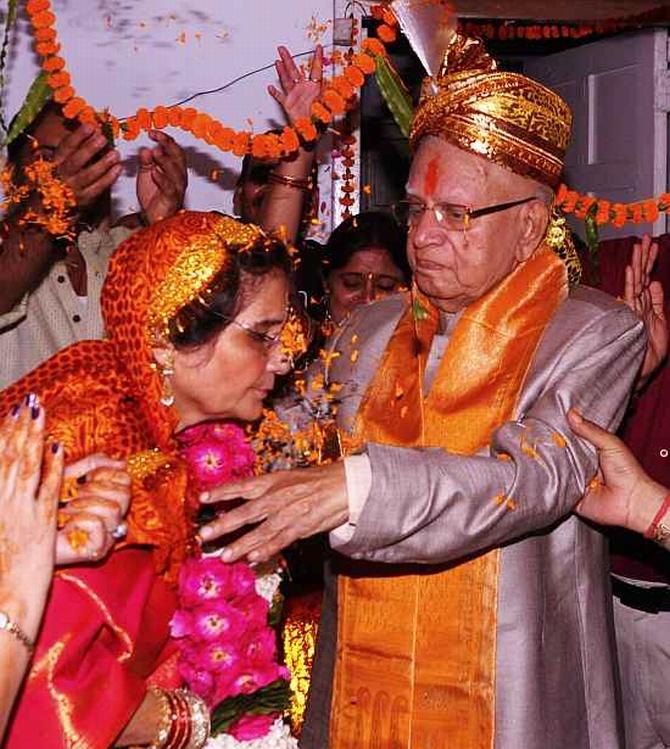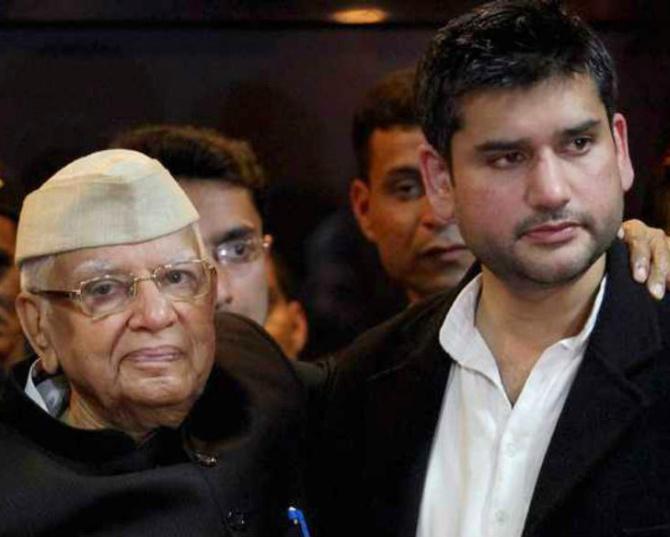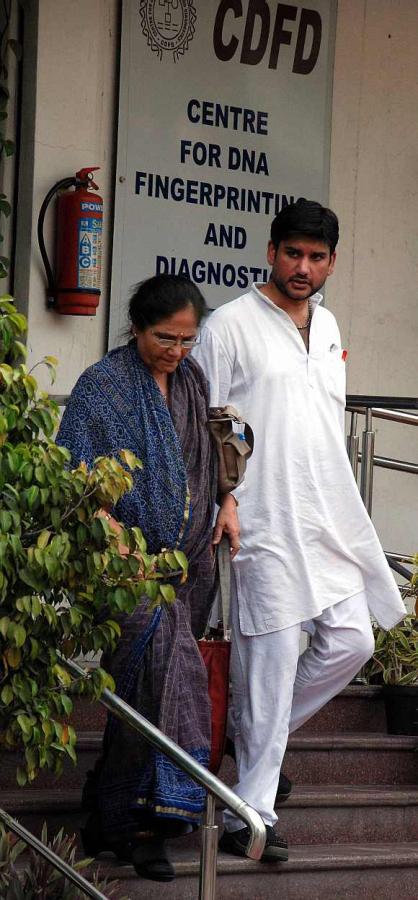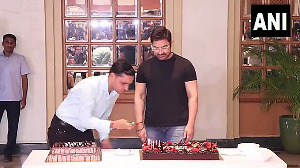Rohit Shekhar's successful legal fight established the right of a child -- at any age -- to know his paternity, reports Veenu Sandhu.

Sometimes in a journalist's life come stories that haunt them for a long time.
The life of Rohit Shekhar Tiwari, who died last month aged 40 (the police suspect he was murdered), is one such story.
I had met him with his mother at their house in South Delhi in 2014, a day after Narayan Dutt Tiwari, a four-time chief minister and former Andhra Pradesh governor, finally publicly acknowledged him as his biological son.
For six years, Rohit Shekhar had been fighting a paternity suit against the powerful politician.
That late afternoon I had expected to meet a triumphant, or perhaps relieved, man.
But the person who appeared in the living room in a dishevelled kurta-pyjama looked agonised, angry even.
As he sat down, his mother tried to tidy his kurta and gently asked him to go and fix himself up.
But he brushed her aside. "Let people accept me the way I am," he said.

This wasn't going to be an easy interview. I wasn't sure he would speak to me or answer my questions, which would, given the nature of the case, be intrusive. MBut he did.
And over the next two hours or so, I found myself looking into the life of a child whose world was thrown into turmoil when a relative told him that the man whose name was on his birth certificate and school report cards was not his father.
That his father was the 'uncle' who would religiously attend his birthdays (but not his elder brother's), who would bring presents for him (but not for his brother) -- and who would one day sever all ties with the family.
As he grew older, the boy became aware of, and increasingly sensitive to, how unforgiving Indian society is towards women and children.
Rohit Shekhar belonged to a privileged family. His mother taught at a college in Delhi and his maternal grandfather had been minister of state for defence.
He lived in a posh area of the national capital. But none of this could cushion him from the harsh patriarchal system that measures a woman's status through a husband, and a child's legitimacy through a father. "We were viewed as a joke in the extended family," he said.
The never-ending trauma took a toll on his heath and at 28, Rohit Shekhar suffered a simultaneous stroke and heart attack.
But he survived, and fought on -- relentlessly. He finally won the prolonged paternity battle against Tiwari, who then legally accepted him as his son and, a few months later, married his mother.

In his short life, the man who went all out to get justice for himself and his mother set a precedent for other such cases, with the court ordering a DNA test to determine paternity and then seeing it through.
When Tiwari repeatedly tried to evade it, saying it would be a violation of his right to privacy, the courts directed the use of police force to collect the DNA test sample if he did not comply.
The Delhi high court also rejected his plea to keep his paternity test result a secret.
The Delhi high court order of December 23, 2010, in the case held that 'a child has a right to know the truth of his/her origin' and that 'the right of a child to know his biological roots can be enforced through reliable scientific tests'.
And also that 'Indian law casts an obligation upon a biological father to maintain his child and does not disregard rights of an illegitimate child to maintenance'.
Rohit Shekhar's successful legal fight established the right of a child -- at any age -- to know his paternity.
But it did not end there. A law graduate, he talked about filing a PIL to get words such as 'bastard', 'unchaste', 'keep' and 'concubine' removed from the legal lexicon.
"These are derogatory towards the woman and the child," he said. "The child is innocent, it's the father who is illegitimate."
The language in our legal system is such that it sometimes puts women and children at a disadvantage.
So, while expressions such as 'child as a bastard' or 'mother as an unchaste woman' are not uncommon, no such pejorative term is used to describe men.
Rohit Shekhar drew attention to this, again and again. "These words should be banned from the courtroom," he said.
Perhaps our legal system, which rests on a bedrock of equality and which stood up for this tormented man, could consider his plea for a more just vocabulary.












 © 2025
© 2025